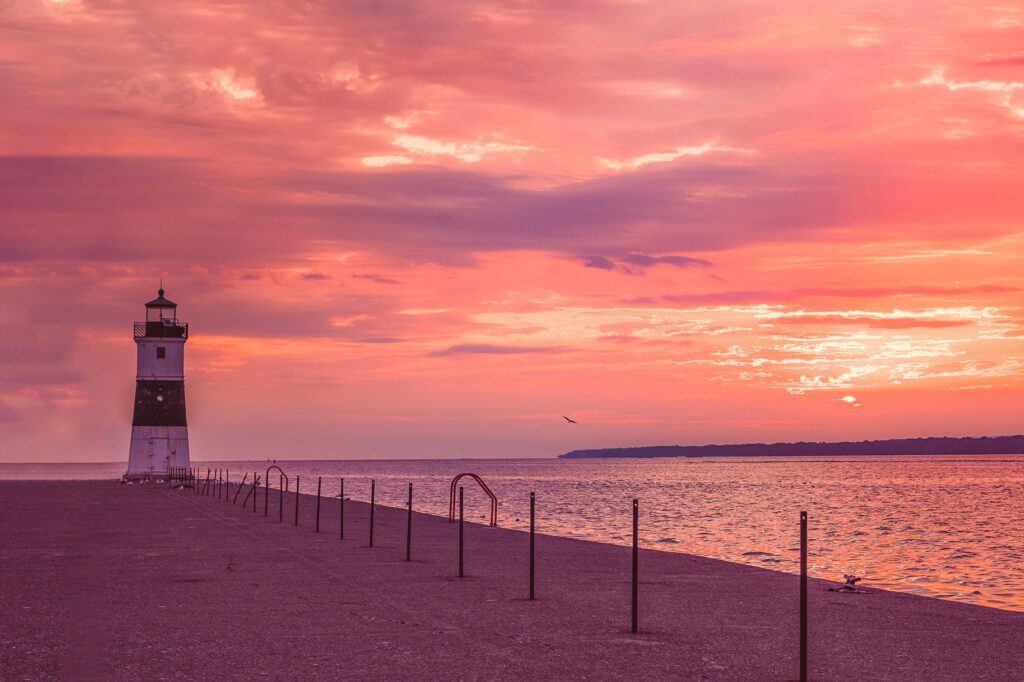ENVIRONMENTAL DEFENCE, WOMEN’S EARTH AND CLIMATE ACTION NETWORK
Indigenous Leaders, Environmental Groups, and Concerned Citizens Call on Canada to Shut Down Enbridge’s Line 5 Pipeline
Ottawa | Traditional, unceded territory of the Algonquin Anishinaabeg People – Today, Indigenous, civil society, and environmental groups from the Great Lakes region delivered a letter to Prime Minister Trudeau and members of his cabinet, calling for Canada to withdraw its use of the 1977 pipeline treaty and shut down Enbridge’s Line 5 pipeline. Organizers and Indigenous leaders met with parliament members to deliver the letter and express the outlined demands. The letter, signed by over 300 groups and 6,000 individuals to date, includes Indigenous leaders and scientists.
Line 5 transports crude oil through the heart of the Great Lakes, an invaluable cultural resource for residents and visitors to the region who benefit from the connection with the water and the land. The pipeline has already leaked 29 times, spilling over 4.5 million litres of oil and putting 84 percent of North America’s surface freshwater at risk. And yet, Canada continues to prioritize the ongoing operation of the pipeline over this critical global freshwater system.
The letter urges Canada to “stop impeding the efforts to shut down Line 5 by those who depend on clean water in the Great Lakes region and uphold the inherent rights of the Indigenous Nations of the Great Lakes while honoring all of the treaties with Indigenous Nations north and south of the border that predate and supersede the 1977 pipeline treaty.”
Canada has formally invoked the 1977 Pipeline Treaty twice to keep Line 5 in operation. First, on October 4, 2021, in response to Michigan Governor Whitmer’s court order to shut the pipeline down after a ship’s anchor strike caused significant risk to the Straits of Mackinac, and again on August 29, 2022, as a means to block efforts by the Bad River Band of Lake Superior Chippewas who are in a legal battle to have Enbridge and Line 5 removed from tribal lands due to the significant threat posed by Line 5 to the Bad River (miiskiizibi/Medicine River) and Lake Superior.
Recently, Bad River Band made a new court filing showing evidence that record snowfalls and heavy rains and winds have further compromised the integrity of the pipeline, significantly increasing the risk of a spill into the river.
Michelle Woodhouse, Water Program Manager at Environmental Defence Canada, and Métis water protector, said:
“Enbridge’s Line 5 pipeline poses an existential threat to Indigenous Nations of the Great Lakes, and its ongoing operation is an ecological disaster in the making. Canada’s decision to invoke an obscure 1977 pipeline treaty to obstruct efforts to protect fresh water, is a shameful attempt to circumvent the inherent and treaty rights of Indigenous Nations. Instead, Canada must prioritize and listen to Indigenous Nations who are calling for the closure of Line 5. We must honour the treaties. There are other ways to meet our energy needs. We can live without Line 5, but we cannot live without the Great Lakes.”
Jannan J. Cornstalk, Citizen of Little Traverse Bay Bands of Odawa Indians, and Director of the Water is Life Festival, said:
“Allowing Line 5 to proceed is cultural genocide. Our very lifeways and cultures hang in the balance as pipelines like Line 5 continue to operate, long past their lifespan, in our territories and waters. This doesn’t only impact our lifeways but it also impacts everybody up and down stream. We are calling for Canada to listen to Indigenous peoples and take action to stop this dangerous pipeline before another oil spill poisons the water and our communities. That water is our relative, and we will do whatever it takes to protect our water, our sacred relative.”
Chairman Wiggins, Bad River Band of Lake Superior Chippewa, said:
“The interconnected waters flowing through the Mashkiiziibii — the Bad River — are inseparable from our people’s existence. We cannot afford to place our trust wholly in Enbridge’s assurances that these waters are safe. Instead, we must follow the science and our own traditional knowledge gathered by generations whose lives depended on this ecosystem. In one week alone, nearly half the riverbank eroded away. At this moment, just one more storm could expose the oil pipeline to the river’s current, and we could experience a release of oil akin to what happened in the Yellowstone River in 2011 or the Arkansas River in 2014. This is an imminent threat not just to our way of life, but to the clean waters that sustain all the residents and businesses throughout the Lake Superior basin. The court needs to take action to shut down and purge Line 5 before it’s too late.”
Paul DeMain, Akiing 8th Fire – Madeline Island, said:
“It is hypocritical at the least, for a foreign corporation, who claims to respect the sovereignty of Indigenous Nations and tribes, with retained resource rights in treaties with the United States, having a Minister of Canada invoke a new Treaty with Canada with the U.S. in 1977 – to override, countersue, harass, and litigate in the face of getting rid of a 70-year-old decrepit oil line that had a proposed life of 50 years. Canada proves again, and again, that money, resources extraction and degradation of the environment is more important than covenants of trust and consultation.”
Osprey Orielle Lake, Executive Director of the Women’s Earth and Climate Action Network (WECAN) said:
“Enbridge’s Line 5 pipeline is operating illegally nearly two decades after its engineered lifespan, threatening Indigenous Peoples existence and rights, biodiverse ecosystems, and the Great Lakes, which holds one-fifth of the world’s freshwater. If Canada and the United States want to protect the environment and act as climate leaders then they must immediately shut down Line 5 and revoke the use of the 1977 pipeline treaty, as well as stop all plans for the pipeline’s expansion.”
Background information:
- The United Nations Permanent Forum on Indigenous Issues has warned that the ongoing operation of Line 5 is a “real and credible threat to the treaty-protected fishing rights of Indigenous Peoples in the United States and Canada.” The UN Body is calling for Canada to reexamine its support of the Line 5 pipeline and recommends the two countries decommission Line 5.
- The Line 5 pipeline was originally built in 1953 and is currently operating 20 years past its engineered lifespan.
- Enbridge is proposing to extend the lifespan of the Line 5 pipeline indefinitely, despite strong opposition from Tribes and environmental groups.
- Several analyses have found that the pipeline is not necessary to meet energy demand.
- The Great Lakes are the world’s largest surface freshwater ecosystem, are home to over 3,500 species of plants and animals, and support billion-dollar economies. They are also a drinking water source for more than 40 million people.
– 30 –
For more information or to request an interview, please contact:
Paula Gray, Environmental Defence, media@environmentaldefence.ca
Katherine Quaid, Women’s Earth and Climate Action Network, katherine@wecaninternational.org






